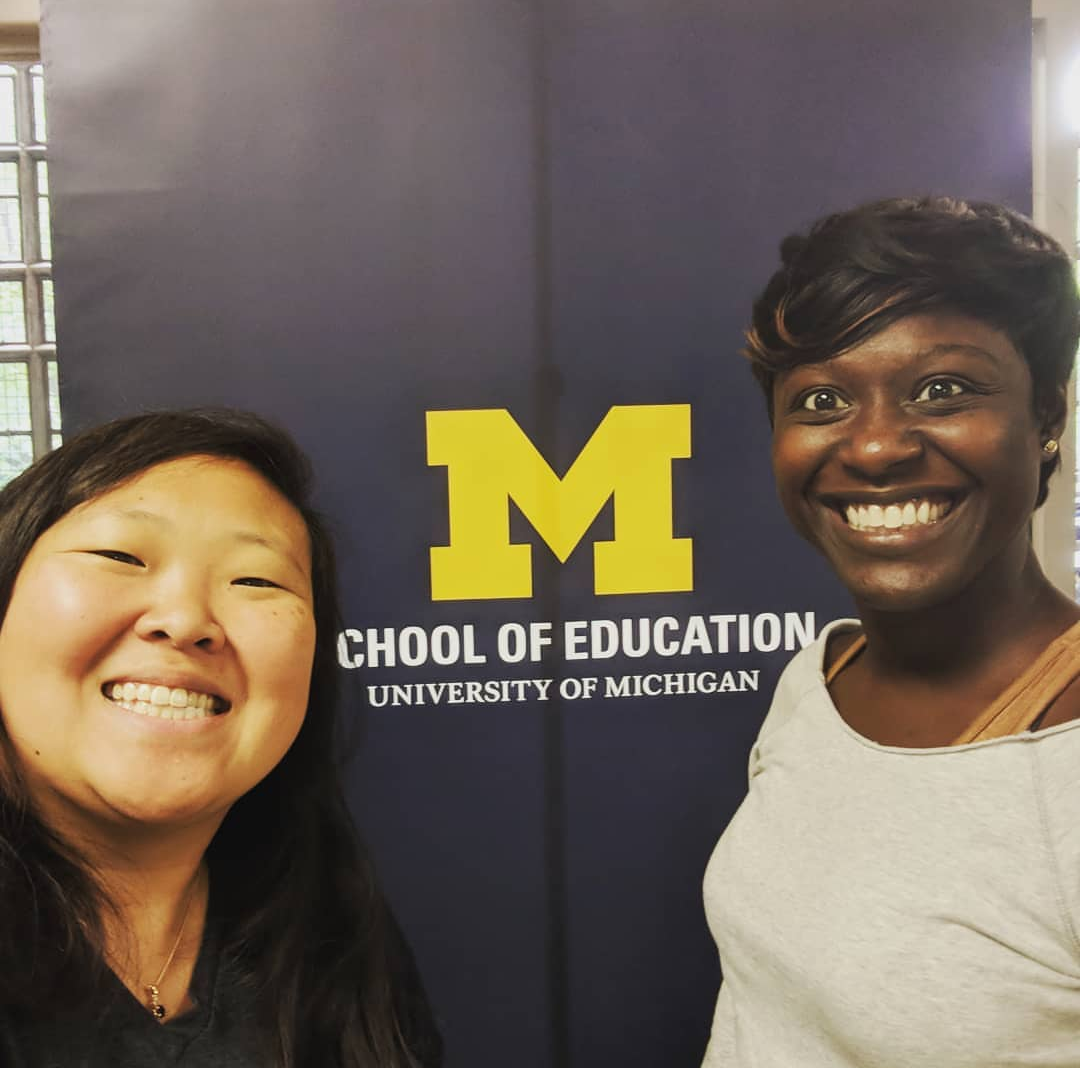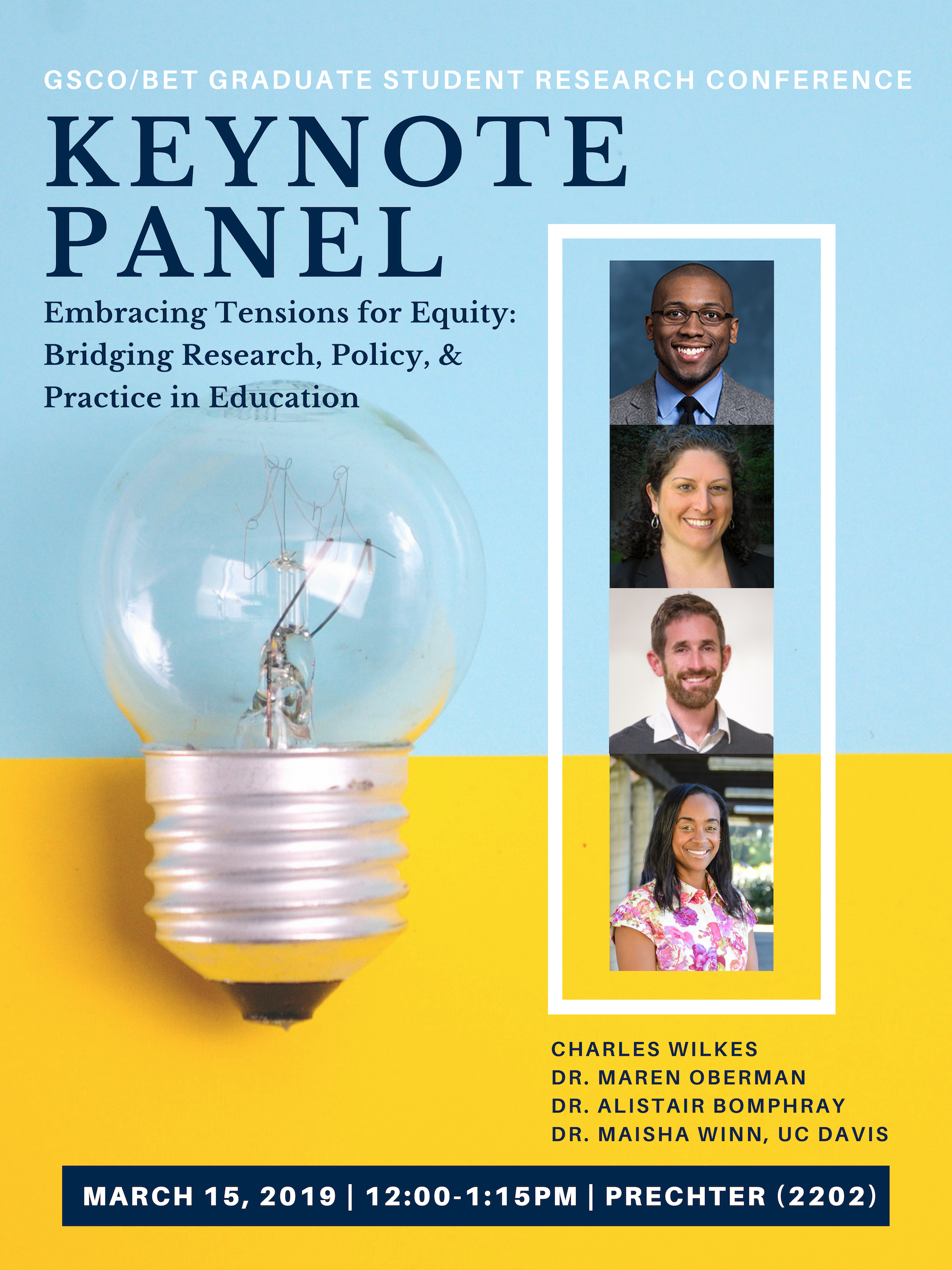On Tuesday, April 27, 2021 I will be defending my dissertation!
Committee:
Dr. Enid Rosario-Ramos (chair, Educational Studies)
Dr. Deborah Ball (Educational Studies)
Dr. Maren Oberman (Educational Studies)
Dr. Ruth Behar (cognate, Anthropology)
Abstract:
Many well-intending teachers perpetuate racism within their schools and classrooms. Teacher education programs have an urgent responsibility to shift teachers’ attentions from their intentions of equity toward the impact that racially uninformed practices have in their classrooms. Drawing on critical race theory in education, culturally responsive pedagogies, and liberatory pedagogies, this study focuses on how a teacher educator of color engages preservice teachers in antiracist learning.
This study is conducted over a semester-long literacy course required for teaching certification. This study focuses on three salient sites of teacher thinking (Ladson-Billings, 2006) as opportunities for antiracist transformation and change: personal experience, instructional practice, and curricular design. These salient sites guide the research questions: 1. What challenges do teacher educators of color experience in their commitments to antiracist teaching and learning? 2. How do preservice teachers’ responses to instructional design that is grounded in guiding principles of antiracism demonstrate their preparation for engagement in antiracist teaching and learning? 3. How did preservice teachers apply the work of antiracism within the salient sites of curricular, instructional, and personal thinking? This dissertation is a nested study which focuses on antiracism in both teacher educator and preservice teacher practice. The three research questions investigate the personal, instructional, and curricular sites of teacher thinking for teacher educators. The third research question investigates the curricular instructional, and personal sites of teacher thinking for preservice teachers.
The first investigation focuses on the challenges that teacher educators of color face in antiracist teaching and how they experience these challenges. Preservice teachers positioned their teacher educators of color as unprofessional non-experts through delegitimizing and dehumanizing practices. As a result of enduring racial duress, teacher educators of color experienced fatigue, exhaustion, and mental and physical pain. These findings have implications for teacher education programs, which must do more to promote the antiracist development of preservice teachers while also supporting teacher educators of color as they engage in the difficult and complex work of challenging systems of oppression.
The second investigation focuses on four guiding principles of antiracist teaching and learning: shared vulnerability, discomfort and empathy, mutual responsibility, and critical self-reflection. Preservice teachers responded in three different ways to these guiding principles: avoiding the topic of race, acknowledging that change is necessary, and preparing for future action. These findings have implications for designing instruction which promotes antiracist teaching and learning, particularly for individuals who may be in the early stages of learning about antiracism.
The third investigation examined how preservice teachers demonstrated their commitments to antiracism through curricular design, instructional practice, and personal perspectives towards students. Preservice teachers took four approaches to antiracism across the three salient sites of teacher thinking: resistance, ill-informed, authorized, and strategic. Preservice teachers took different approaches to antiracist learning across each of the three salient sites of teacher thinking, demonstrating different antiracist commitments. The implications for this work are that teacher educators and teacher education programs must be specific in their commitments to antiracism and how they support preservice teachers in applying their own commitments to practice.
The goal of this study is to learn about the internal and external work of antiracist teacher education for the purposes of examining invisible labor of instructors of color, developing instructional strategies to support antiracist teaching and learning, and understanding preservice teachers’ realizations of antiracist pedagogy through their educational practice.
I wanted to find a way for my community to participate and celebrate this day with me, so the dissertation defense is also a theme party: “D is for Dissertation" (dress in a costume that starts with the letter “D” or show your support dressed as yourself!).
Thank you to everyone who has supported and encouraged me.




















